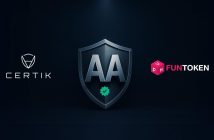Analysts and crypto experts have labeled cryptocurrencies as the next evolution of finance. Since the inauguration and debut of Bitcoin, the entire industry has witnessed a technological shift as high-performance blockchains find their way into the industry. The power of aligned ambitions settles with Bitcoin Spark, Dash, and Arweave.
Contents
What are the advantages of using Dash?
Dash is a decentralized old-generation cryptocurrency that emerged in 2014, intending to unveil an efficient network that enhances anonymity in the DeFi ecosystem. Dash network bears several advantages that Web3 users would find life-changing. The PrivateSend feature offers more privatized transactions by camouflaging the identity of the origin and destination of transactions. The InstantSend feature favors time-sensitive transactions by offering high transaction speeds to the users. Additionally, the Dash ecosystem is decentralized, allowing community members to participate actively in the administration process.
What is Bitcoin Spark?
The growth and development of the Web3 infrastructure has unveiled Bitcoin Spark, a high-performance blockchain offering an alternative network to the Bitcoin ecosystem. BTCS is the utility token powering the Bitcoin Spark ecology by offering a medium for payment of transaction speeds and a form of rewarding miners. BTCS’s maximum supply is limited to 21 million. 4.3 million BTCS tokens have been minted on Ethereum as ERC-20 tokens to support the initial coin offering event that will raise funds to push developments for the network.
What is Bitcoin Spark’s utility?
Bitcoin Spark’s utility lies in its underlying applications in the crypto arena. The platform’s BTCS token is a lucrative investment vehicle for crypto holders. Additionally, Bitcoin Spark has an audited smart contract that dictates future innovation and advancement in blockchain technology. The platform’s smart contracts will make the network more efficient in deploying decentralized applications supporting technological advancement and Web3.
Bitcoin Spark community developers will use different high and low-level languages to deploy DApps. The platform has also announced the debut of a new consensus mechanism called proof of process, designed to decentralize BTCS mining as an antithesis of Bitcoin mining activities known to be highly centralized and with massive entry barriers. On the Bitcoin Spark mainnet, anyone with a smart device powered by Android, iOS, Linux, or Windows, alongside stable internet connections of about 50 Mbps, can participate in network verification processes that yield BTCS tokens as rewards.
Unlike Bitcoin mining, which requires sophisticated RAM and CPU requirements, Bitcoin Spark’s mining activities will allow device flexibility. Miners can choose to set the mining performance of the device to 95% when they are not actively using the device, for instance, during the night when they are asleep. When they intend to use the device, the mining performance may be adjusted to around 45%, allowing the user to multitask the device and earn passive income simultaneously.
What is Arweave?
Web3 data storage has always been in great demand. This is why Arweave was developed. Arweave is a decentralized protocol that offers safe data custody and storage on decentralized devices linked to a network. The Web3 protocol links users with excess storage to those needing extra storage. The advantage of using Arweave is that it claims to charge a single lifetime payment for a permanent storage issuance through the “Permaweb” feature that makes the protocol unique.
Learn more about Bitcoin Spark on:
Website: https://bitcoinspark.org/
Buy BTCS: https://network.bitcoinspark.org/register
Disclosure: This is a sponsored press release. Please do your research before buying any cryptocurrency or investing in any projects. Read the full disclosure here.




